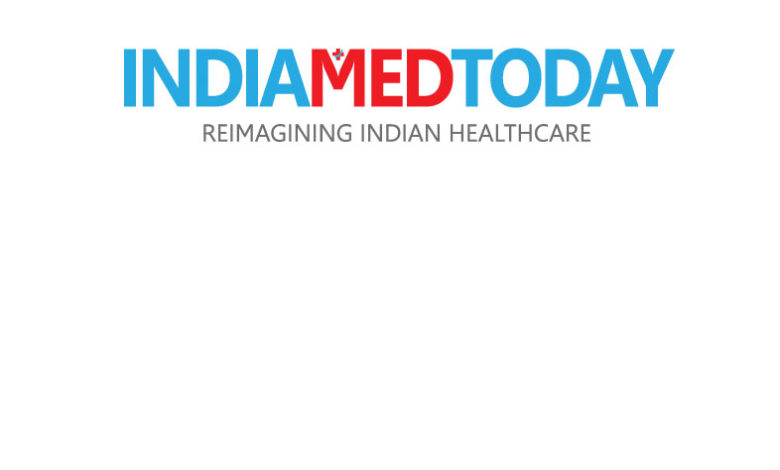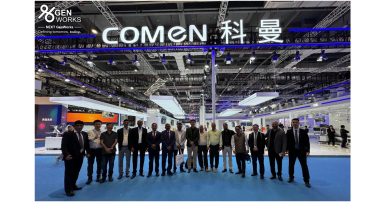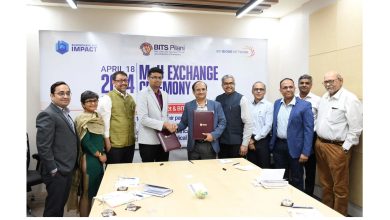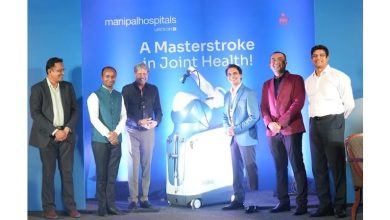Conference and workshop of The Cancer Genome Atlas (TCGA) held in Pune

The online conference is based on the theme ‘Towards Team Science for Multi-omics Cancer Research in South Asia’
Centre for Translational Cancer Research ( a joint initiative of Prashanti Cancer Care Mission and IISER Pune), Persistent Systems, TCGA, Institute of Cancer Research (UK), CSIR-Institute of Genomics and Integrative Biology and DBT-Wellcome Trust India Alliance are jointly organising the 2nd TCGA-themed virtual workshop and conference till December 5, 2020. The online conference is based on the theme ‘Towards Team Science for Multi-omics Cancer Research in South Asia’.
TCGA is a landmark cancer genomics programme that molecularly characterised over 20,000 primary cancer and matched normal samples spanning 33 cancer types. This joint effort between the US- National Cancer Institute and the National Human Genome Research Institute began in 2006, bringing together researchers from diverse disciplines and multiple institutions. Over the years, TCGA generated over 2.5 petabytes of genomic, epigenomic, transcriptomic, and proteomic data. The data, which has already led to improvements in the ability to diagnose, treat, and prevent cancer, will remain publicly available for anyone in the research community to use.
On similar lines, the establishment of an ‘Indian Cancer Genomics Atlas (ICGA)’ has been initiated by a consortium of key stakeholders in India led by Council of Scientific and Industrial Research (CSIR), Government of India in which several government agencies, cancer hospitals, academic institutions and private sector partners.
The TCGA 2020 conference was inaugurated by Dr Harsh Vardhan, Minister of Science and Technology, Health and Family Welfare and Earth Sciences and Vice President of Council for Scientific and Industrial Research (CSIR), Prof Shekhar Mande, Director General, Council for Scientific and Industrial Research (CSIR), Government of India and Dr Jean Claude Zenklusen (Director, TCGA, National Cancer Institute, National Institutes of Health, USA).
During the three-day online event, TCGA experts and key ICGA stakeholders will deliberate on the vision, design and plans of the ICGA project with regards to common SOPs, operations, logistics and governance models. More importantly, conference sessions will be planned around the central theme of building a culture of team science for undertaking mega-cancer research projects in India and neighbouring countries. Global experts discussed technical aspects of data/biospecimen/multi-omics studies and applications of Precision Oncology in clinical cancer management.
In addition, eminent translational cancer scientists and onco-clinicians from India and abroad have confirmed their presence at the conference as speakers. Over 1000 delegates representing basic scientists, translational researchers, clinical researchers, genomics scientists, bioinformaticians, biostatisticians, big-data experts from academia, clinical medicine, industry and governmental agencies are expected to attend. The conference is open to everyone with prior registration.
Prof Shekhar Mande, Director General, Council for Scientific and Industrial Research, Government of India said, “The establishment of an ‘ Indian Cancer Genomics Atlas (ICGA)’ a pan India consortium involving multi-disciplinary teams is a much needed important initiative and can transform cancer management in the country in the times to come. Cancer is an area where genomics offers tremendous promise and ICGA will enable the generation of harmonised Indian data that is critical for ‘personalized therapy’ for the Indian population.”
Dr Jean Claude Zenklusen, Director, The Cancer Genomics Atlas, National Cancer Institute, National Institutes of Health, USA said, “I am glad to be able to help the researchers in India with launching the ICGA project. I am truly amazed at the speed and professionalism shown in launching this effort that can greatly benefit not only the Indian population but humanity as a whole.”
Dr Anand Deshpande, Founder, Managing Director and Chairman, Persistent Systems said, “This conference brings together the cancer research community on a common platform to accelerate multi-disciplinary, collaborative and nation-wide initiatives that are clinically impactful. The Center for Translational Cancer Research (CTCR) and Indian Cancer Genomics Atlas (ICGA) are allied initiatives aimed at tackling the understanding, prevention, diagnosis and treatment of cancer in South Asia. At Persistent Systems, we have always believed in the transformational impact of technology on clinical research and bring our considerable technical expertise to this endeavour.
Prof Sunil Badve, Joshua Edwards Professor of Laboratory Medicine, Indiana University School of Medicine, Indianapolis, USA mentioned, “The ICGA, which started off as a dream, is now becoming a reality. As we execute this project, we need to constantly remind ourselves that data generated needs to be comparable to international standards. This will enable comparisons and understanding of the similarities and differences between these populations. The results obtained will have an enormous impact on the people of Indian origin, whether they reside in India or they are NRIs like me.”
Dr LS Shashidhara, Dean ( R&D), Ashoka University and Professor, IISER Pune President, International Union of Biological Sciences (IUBS) said, “ICGA consortium will bring together diverse expertise working on different aspects of cancer. Collectively, it will develop all protocols and ethical guidelines and get them validated and share with the entire consortium so that all of us generate data in the same way. A meta-analysis of all cancer data generated in India will be easier, more effective, and relevant, this makes cancer research more cost-effective and accelerates bench-to-bedside translation reducing the overall cancer burden in the country.”
Dr CB Koppiker, Medical Director, Prashanti Cancer Care Mission, Pune said, “In my 30 years of onco-surgery practice, personalised cancer treatment has been a guiding principle. I am excited to see the significant strides in molecular-oncology that are enabling more effective cancer management globally. Cancers in India are uniquely different from the rest of the world with respect to epidemiology, clinicopathologic and treatment response. Hence, large scale, co-ordinated national cancer genomics programs such as the Indian Cancer Genome Atlas ( ICGA) are timely and pertinent for our nation.”




